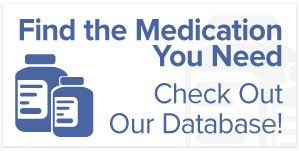Polycystic ovarian syndrome (PCOS) is one the most common hormonal disorders and causes of infertility affecting women of childbearing age and beyond. Recent statistics indicate that nearly 5 million women (6-12%) of this age are affected by this disorder in the US alone. Its global prevalence is approximately 116 million (4% and 20%) women of childbearing age. However, PCOS can be lifelong and continues far beyond the reproductive age.
One of the most frequent questions among women is about PCOS treatment. Is it treatable?
To date, there is no specific cure for PCOS, but there are medications to control the symptoms, with a healthy lifestyle being an essential part of its treatment.
Here’s what you need to know about PCOS treatment:
Understanding PCOS
Polycystic means “many cysts.” Cysts are small pockets filled with fluid, air, or gas and can appear on any body part. PCOS manifests itself by creating numerous cysts within the ovaries, disrupting ovulation and causing infertility, menstrual irregularities, weight gain, excess hair growth, acne, and multiple metabolic conditions.
This gynaecological, endocrine disorder is chronic and has an unclear origin. However, genetic, environmental, and epigenetic components are most likely to be the causes why it concerns young women.
PCOS symptoms continue to evolve throughout life. Dysovulation and hyperandrogenism are more prevalent in younger women. With age, symptoms associated with metabolic syndrome start appearing. We can divide the major symptoms based on different life stages:
- Irregular menstrual cycles and hyperandrogenism affect the young (at 15)
- Hyperandrogenism and infertility usually appear at 25–30 years
- Hyperandrogenism and carbohydrate intolerance start after 40
- Cardiovascular and type 2 diabetes risks are higher in women above 50
Hyperandrogenism is the defining component of PCOS present in every stage of a woman suffering from this disorder. It refers to the presence of androsterone, testosterone, and androstenedione (the male sex hormones) in females, causing facial hair and acne.
PCO Treatments
As mentioned above, there’s no definite PCOS treatment to date. However, symptomatic treatment exists based on drug treatment for infertility, higher insulin levels, acne, etc., and a lifestyle change.
PCOS Medication
- Hormonal contraceptive therapy, usually an estrogen-progestogen pill, is prescribed as first-line treatment to regularize the menstrual cycle and lower male sex hormone levels, reducing facial hair growth and acne.
- Metformin© is prescribed to treat high insulin levels in pre-diabetic or diabetic women with PCOS. Doctors often combine contraceptive pills and Metformin© to target the different symptoms.
- Topical and oral antibiotics are also prescribed to treat acne.
Lifestyle Change
PCOS treatment relies on lifestyle changes. Women with PCOS should incorporate a balanced diet and physical exercise into their routines. Weight loss helps reduce hyperandrogenism significantly and also has a beneficial effect on fertility.
Overall, losing weight and balancing insulin levels help reduce symptoms of PCOS and risks of diabetes and other cardiovascular disorders.
Infertility Treatment
Since PCOS disrupts ovulation, it is the leading cause of infertility in women. While some women with PCOS can conceive normally, others do not ovulate at all or as little as 2 or 3 times a year.
In advanced cases, gynaecologists often resort to ovarian stimulation, surgical procedures to restore ovulation, or medically assisted procreation (PMA).
Contact Rx Helper and Get Medications for PCO Treatment at a Discounted Price or Free!

If you’re having affordability issues and need prescription assistance for your PCOS medication, contact the Rx Helper!
We are the leading prescription assistance company providing medications to uninsured patients at discounted prices or for free. Enroll in our program and see if you qualify for prescription assistance at a very low Cost of Service.
Contact Us for a FREE consultation and get medications to cure your PCOS symptoms!



